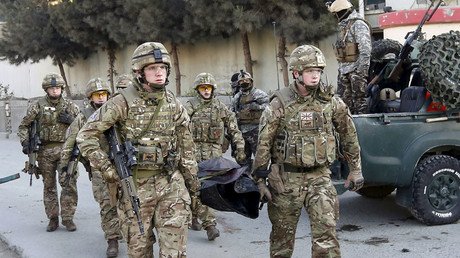EU’s Mediterranean anti-smuggling mission doomed without stable Libya – Lords
The EU’s operations to stop people trafficking in the central Mediterranean will not work without a stable government in Libya, according to a House of Lords report published on Friday.
The report, named ‘Operation Sophia: An Impossible Challenge,’ in reference to the operational name of the EU mission, argues a robust Libyan state authority is a crucial factor in stemming the flow of migrants.
Lord Tugendhat, who fronted the report, lauded the naval mission for saving thousands of lives in a search and rescue (SAR) capacity, but lamented the political vacuum in the war-torn North African state.
“A naval mission cannot disrupt the business model of people smuggling, and in this sense it is failing. The smuggling networks operate from Libya, and they extend through Africa,” Tugendhat argued.
“Without support from a stable Libyan government, the operation is unable to gather the intelligence it needs or tackle the smugglers onshore,” he added.
Tugendhat stressed the new UN-brokered Libyan unity government of Fayez al-Sarraj may not be in a position to help with the mission for some time, arguing “that the destruction of vessels has so far been insignificant to the scale of the smuggling industry, and we have heard that the smugglers are simply changing their tactics in response.”
The report concludes the war on trafficking cannot be won at sea alone.
Efforts to stabilize Libya by military means have run into controversy in the UK given the proposed inclusion of 1,000 UK troops in an Italian-led stabilization brigade.
Amid warnings from former military chiefs of any deployment rapidly turning into a new Afghanistan-style mire, the al-Sarraj government roundly rejected a deployment of foreign forces.
The argument was made on the basis it would cast the new regime as a Western puppet and serve as a lightning rod for resistance by the various heavily-armed militias in the country.
On May 9, al-Sarraj used an Arab League conference in Cairo to argue for the ending of a UN-ban on arms sales to Libya.
“It doesn’t make sense that the international community supports our war against terrorism, and forbids us from arming ourselves,” he said.
His call to have the embargo lifted was backed by Egypt’s strongman President Abdel Fattah al-Sisi.













